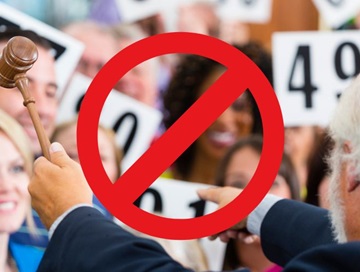After more than a decade, reforms to the Strata Titles Act are finally being debated. While some aspects of the Bill are contentious, these reforms are well overdue and a requirement in order to align WA strata laws with other states and to improve the functioning of strata companies.
What are the proposed changes?
There are seven areas of reform currently being proposed, which include community title schemes, leasehold strata, staged strata development, building management, dispute resolution, better buyer information and the termination of schemes. All will be delivered as a package comprising the Strata Titles Amendment Bill and the Community Titles Bill.
Part 12 (Termination of Strata Schemes) will be examined by the Standing Committee while the remainder of the legislation will be debated by the Upper House in coming weeks.
Proposed changes will see lots of five or more dwellings, require an 80 per cent vote in favour, before the State Administrative Tribunal determines if the scheme can be terminated, and all lots sold.
Currently, a proposal is put to the District Court before a vote is required, which must be unanimous.
Strata reform will have wide-ranging benefits
This section of the legislation has come under scrutiny in recent days, but the proposed reforms offer better protections for property owner’s rights than the current system.
Currently, a third-party can apply to the district court to terminate a scheme, without even notifying owners, resulting in wasted court time and unnecessary costs.
Changes will see this system improved, with better communication at every stage. Owners within the strata scheme will need to vote before a full proposal for termination can be put to them, providing multiple occasions for a proposal to be knocked back if the majority of owners are not in favour.
It also provide greater protections for owners who both agree and disagree with the termination proposals by providing more safeguards for those who oppose, while preventing a minority of owners blocking a proposal for financial gain above the others.
Should the majority of owners wish to terminate the scheme, the State Administrative Tribunal (SAT) will determine if all parties, including those who have opposed terminations, have been treated fairly and would receive adequate compensation for not only the property, but any moving costs, duties etc.
The SAT would have to adhere to strict conditions, meaning people will not be required to terminate a scheme when properties are still in good condition or if any owner will be worse off as a result. This measure will likely only be utilised in cases where the building has aged to a point where maintenance is costing more than owners can afford and is no longer viable.
It also stops a single owner from holding back a termination in an attempt to receive a larger compensation than other owners who have already agreed.
REIWA will continue to advocate for the swift passage of the Strata Titles Amendment Bill 2018 and Community Titles Bill 2018.
Find out more about REIWA's position on strata reform.








767bbbc6-4993-4f16-8933-e9b2baaac7a0.tmb-rcarousel.jpg?sfvrsn=8cf14270_1)

